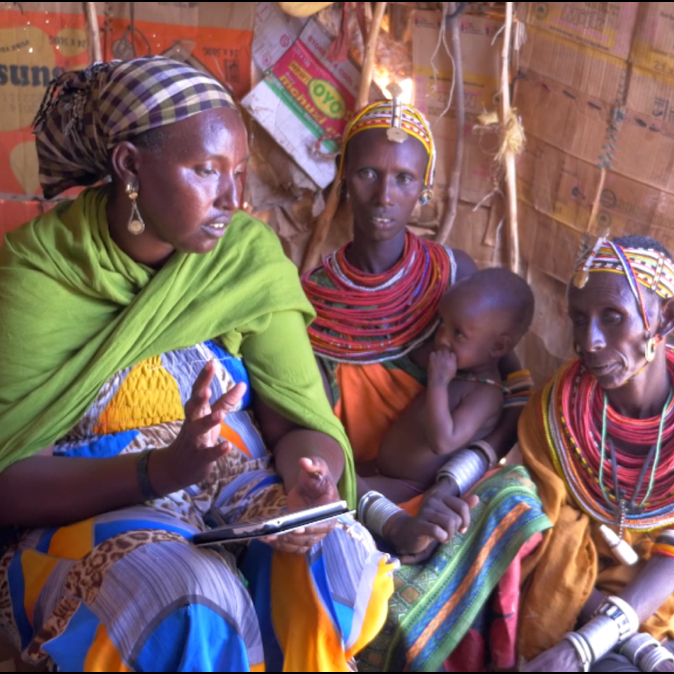Think about the data that your brain processes daily to help you make decisions. The price of gas at the station closest to your home, versus the price at a cheaper station that is further away. How much time it will take you to get out the door to be on time for that morning meeting. How the weather forecast affects your day: do you need to close the windows? Turn on the air conditioning? Bring an umbrella? How much food do you need to get at the grocery store, knowing that you have guests coming for dinner this week. How long it will take you to complete that new project at work, and how much time will you need to allocate for all the other things on your task list.
All those decisions and calculations are driven by data. Data is simply information in, and information out. It is what you do with that information that informs the course of action you choose.
At the BOMA Project, we are obsessed with data. Why is it so important? Because it brings our participants’ lives into focus. When you are looking at decisions that impact not just what time dinner is served, but whether children actually get to eat dinner or have to go to bed hungry, data takes on paramount importance. The thousands of points of data that we collect inform all our decision making relating to REAP (Rural Entrepreneurial Access Project), the poverty graduation program we implement in the arid lands of eastern Africa. From the very beginning, we have been committed to rigorous data collection, monitoring and evaluation to continually improve our program and measure its impact on the lives of the women and children we work with. Every month, we learn more about what works, and, sometimes more importantly, we learn what doesn’t.
Data helps us be the best possible stewards of our mission. When we know something is working, we build it into our program as we move to scale across the region. And when we know something isn’t working, we act quickly to adjust to achieve success.
Throughout the course of our two-year program, our field officers and mentors collect an incredible amount of data on an ongoing basis, including conducting baseline SOLI (Standard of Living Index) studies to determine basic information about our participants upon program entrance and exit. Looking at this information enables us to ask, and answer questions such as:
- Which is more sustainable: A three-woman business model or a one-woman business model?
- When the women in our program accumulate savings, does it make it more likely that their children, especially their girls, will go to school, and what impact does that have on the family?
- What are the predictions for this year’s drought season and what are the best strategies to prepare?

BOMA business mentor Halimo Arbelle collecting data from business group participants in Namarey Village, northern Kenya.
Thanks to careful gathering, inputting, monitoring and evaluating of these data points and many more, we are better able to determine which aspects of the program are the most effective, and the degree to which individuals have progressed out of poverty. Our goal is to scale our program across the region to impact 1 million women and children by 2022, and that vision would not be attainable without our commitment to, and investment in, our data systems.
“BOMA’s data-driven, rigorous and dynamic approach has the exciting potential to reach millions in need across Africa.” – Greg Coussa, International Center for Social Franchising
Our data helps us constantly improve and grow, and it also keeps us accountable—to our participants, to ourselves, and to our funders. Our partners must have complete confidence in us and in how their funds are being used to support our program. We take transparency very seriously, and we pride ourselves on being an extremely, lean, streamlined and efficient organization; having the data to back us up provides that accountability.
Our commitment to data and accountability can create an additional layer of challenge for our team, however, especially given the remote areas where we work where there is no wireless or cellular connectivity. In 2015, BOMA was awarded a prestigious grant from Salesforce.org, Salesforce’s nonprofit social enterprise. The grant enabled us to develop an innovative digital platform, Performance Insights, in partnership with social-good software developer Vera Solutions. Performance Insights is a powerful tool for collecting accurate impact data from the field, and helping us see in real-time how our participants, businesses and savings groups are performing, allowing for faster decision-making and feedback loops.

“With our data platform and tablets, we can upload information and receive feedback immediately, even when we are in the field. We can be more proactive and less reactive. We can measure our results and see where we need to make changes.”
– Kura Omar, Deputy Country Director & BOMA Project Co-Founder, Nanyuki, Kenya. Photo: @DavidduChemin
Building the tools and resources to collect, evaluate and act on vital data is essential to delivering a high-quality program, continuously improving our model, scaling our impact, and instilling confidence in our funders and partners. Data and accountability are not just metrics to us, or to any other nonprofit. They are the benchmarks and guideposts by which we can measure our progress as we seek to implement solutions to some of the world’s most challenging problems.
The BOMA Project is a U.S. nonprofit and Kenyan NGO with a proven track record, measurable results and a transformative approach to alleviating poverty and building resiliency in the drylands of Africa. The BOMA Project is a registered 501c(3). For more information about the BOMA Project’s work, visit www.bomaproject.org
